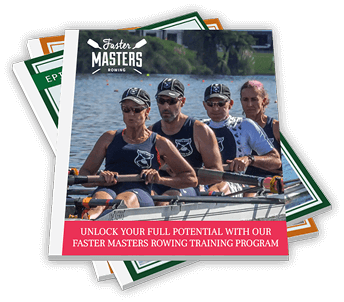Racing equivalence for masters depends on using time handicaps.
Does this work well? Can it be improved? What would you change?
Timestamps
02:00 What are handicaps?
Welcome our guest, Christopher Anton, a World Rowing multi-lane umpire.
Handicaps were introduced 1980-1990s to try and level the playing field for crews of different age. There are tables which are standard times - based on regatta distance and the masters age groups which then indicate the handicaps by age group.
The younger crew starts after the older crew and if everything works perfectly, they will dead heat on the finish line. The regatta organisers publish a set of standard times before the regatta starts. Now in the UK they race over 2 or 3 categories of adjacent age groups. Scotland has a different set of tables than England.
05:30 The timetables have been derived empirically over the years. US Rowing has a formula depending on the average age of the crews which deducts time at the end of the race. There are advantages and disadvantages of both methods. It's an art more than a science. In England the older crew wins about half the races.
08:50 Head races use the tables but this was introduced more recently. The tables were extrapolated out to 50 minute long races. The handicap gets deducted from the elapsed time at the finish.
11:00 Are handicaps a good thing for masters rowing?
Christopher thinks generally they are good. They provide racing opportunities where they wouldn't before when insufficient entries are received in a single age group. Handicaps were not designed to enable a 27 year old to race an 80 year old. In UK they tend to use 10 year age bands. They shouldn't be used as a way to get out of giving prizes - Head Races use them to give one prize for masters.
13:30 British Rowing Championships introduced a "Club" race which uses 3 age groups together along with ranking points. This is A, B and C; then D, E and F as a separate group. These show better correlation than age. This is for non-championship events. So they do not use handicaps.
British Rowing ranking points explained for seeding each heat in the event. These roughly correlate with speed. With a tailwind the "standard time" for the course would reduce to account for the wind.
18:00 British Rowing are reviewing their handicaps - they haven't changed since they were first set up. The older age categories were extrapolated from the younger ones. Should handicaps, be the same for men, women and mixed? If an F sculler has a 15 second handicap should this be the same for women? Menopause affects women so their times degrade more steeply than men.
Erg scores as a data source
21:00 The Concept2 world ranking is a big data source for erg race times as they are globally comparable. More women in 50-60s train more frequently nowadays so we better understand diet and strength training post-menopause which affects race times. There are higher levels of competition into age 70s.
Marlene has seen men who stay in good fitness through their 50s and 60s don't get erg times dropping off a lot until they are over 70.
24:00 Are the handicaps appropriate for those new to the sport in their 40s?
Pathway for the adult beginner. The San Diego Crew Classic introduced a new rower / intermediate category for masters in their first 5 years of rowing based on Faster Masters Rowing's recommendation. Skill is a bigger determinant than age for beginners.
British Rowing no longer has a novice category. But river regattas are offering races for masters new to the sport. New Zealand rowing offers a. novice year for your first year after you have entered your first race. Masters practice less frequently than juniors and so Rebecca is encouraging regattas to offer events for those new to the sport (3, 4 or 5 years). Christopher thinks British Rowing could look at having intermediate level event races.
30:00 FISA Masters Champs has a big entry for popular events e.g. E1x and FIx. can have 50-60 entries. They put you in heats in order of age - you may be against F age or older. It ensures fairness by age and you can end up in the oldest heat when nobody in the race is actually an F age.
FISA has no appetite for change because they have enough entries in every category. By comparison, the World Masters Games has heats, semis and finals so you know who the overall winner is. The skill levels are very different at older age categories. The Euro masters had heats racing together at the end after day for small boats in order to try to find the overall champion. In Australia they have a 10 lane supreme sculler handicap race at the end of the regatta for all the single scull age group winners.

